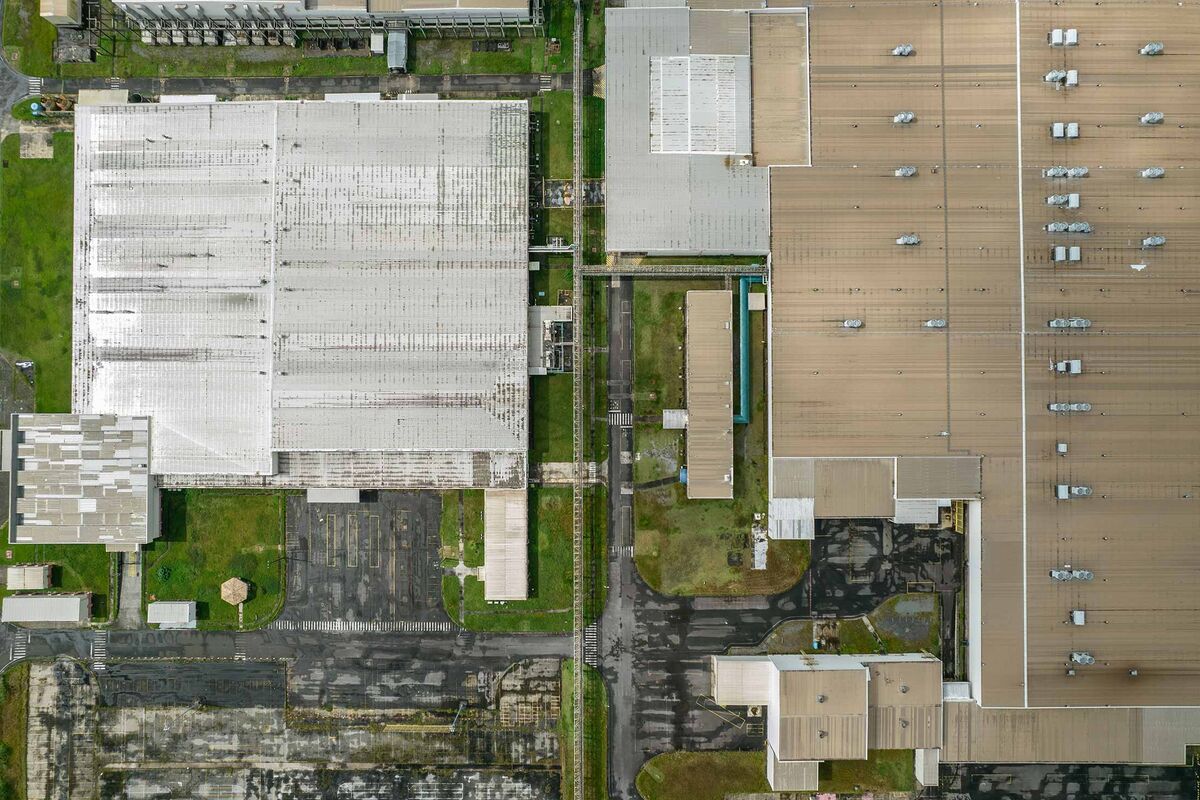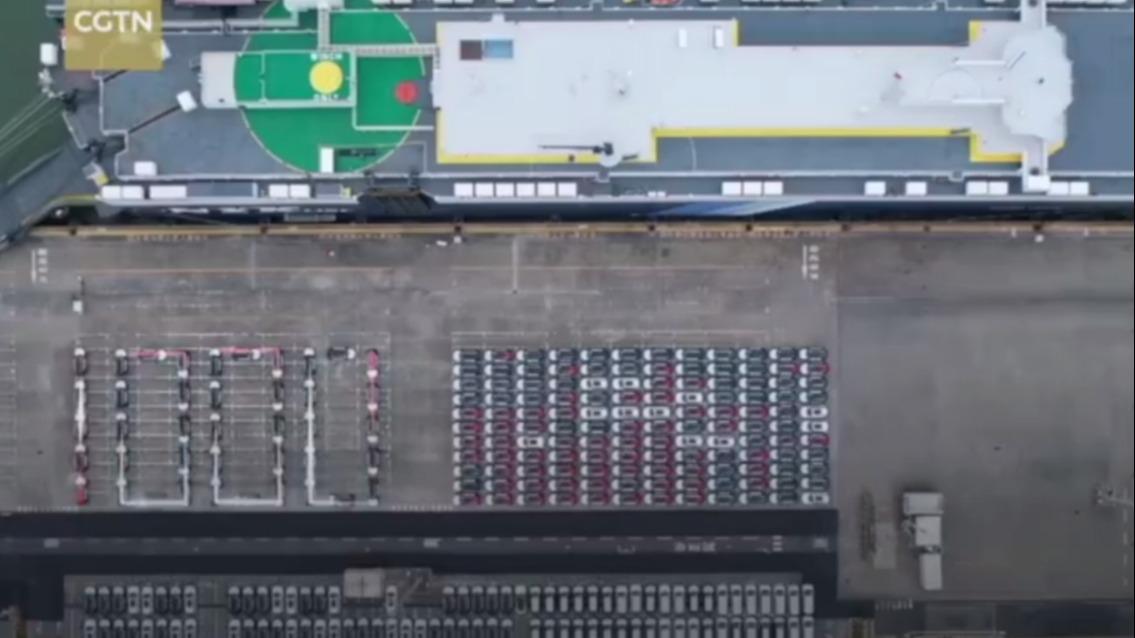China's BYD Challenges Ford's Legacy In Brazil's Electric Vehicle Market

Table of Contents
BYD's Strategic Entry into the Brazilian EV Market
BYD's success in Brazil stems from a multi-pronged strategy focused on aggressive pricing, strategic partnerships, and a diversified product portfolio.
Aggressive Pricing and Product Strategy
BYD has cleverly undercut Ford's pricing, making electric vehicles more accessible to a wider range of Brazilian consumers. This competitive pricing strategy, coupled with attractive features, is a key factor in BYD's rapid market penetration.
- BYD Seal vs. Ford Mustang Mach-E: The BYD Seal offers comparable features to the Ford Mustang Mach-E at a significantly lower price point, making it an attractive option for budget-conscious consumers.
- BYD's Blade Battery Technology: This innovative battery technology offers improved safety, range, and efficiency, providing a compelling value proposition for Brazilian buyers. This is a significant differentiator compared to some Ford models.
Government Incentives and Local Partnerships
The Brazilian government's incentives for electric vehicle adoption have played a crucial role in BYD's success. Coupled with this, BYD has forged strategic partnerships with local businesses, ensuring a robust distribution network and reliable after-sales service.
- Government Incentives: Tax breaks and subsidies for EV purchases have made BYD vehicles more affordable.
- Local Partnerships: Collaborations with local dealerships and service providers have expanded BYD's reach and customer support capabilities across Brazil.
Expanding Beyond Passenger Vehicles
BYD’s ambition extends beyond passenger cars. They are actively exploring opportunities in other electric vehicle segments in Brazil.
- Electric Buses: BYD is supplying electric buses to several Brazilian cities, contributing to sustainable public transportation.
- Electric Trucks: While still in early stages, BYD is exploring opportunities within the electric truck segment, anticipating growing demand within the logistics sector in Brazil. This diversification further solidifies their commitment to the Brazilian market.
Ford's Response to BYD's Challenge in Brazil
Ford, a long-standing player in the Brazilian automotive market, is facing increasing pressure from BYD's rapid expansion. Their response involves a combination of strategies aimed at maintaining market share.
Maintaining Market Share in a Changing Landscape
Ford is actively working to adapt to the changing market dynamics.
- Product Updates: Ford is likely to introduce new EV models or updates to existing models to compete more effectively with BYD's offerings.
- Marketing Campaigns: Enhanced marketing campaigns highlighting the strengths and features of Ford EVs are expected to increase their competitiveness.
- Price Adjustments: Ford may adjust pricing strategies to better compete with BYD's price competitiveness.
Investment in EV Infrastructure
Ford's investment in charging infrastructure is crucial to supporting its EV sales.
- Charging Station Initiatives: While details may be limited, Ford is likely investing in or partnering with companies to expand the EV charging infrastructure across Brazil. This is vital for customer confidence in their long-term commitment to the electric vehicle market.
- Comparison with BYD: While both companies need to participate in building the charging infrastructure, the scale and scope of their investments and partnerships likely differ, influencing their respective market penetration strategies.
Focus on Specific Market Segments
Ford could also respond by focusing on specific market segments.
- Luxury Vehicles: Ford might emphasize its higher-end electric vehicles to cater to a niche segment less price-sensitive than the mass market BYD is targeting. This allows them to maintain a premium position and avoid direct price competition.
The Broader Implications for the Brazilian Automotive Industry
The increased competition between BYD and Ford has significant implications for the broader Brazilian automotive landscape.
Increased Competition and Consumer Choice
The rivalry between BYD and Ford is increasing competition and providing more choice for Brazilian consumers.
- Model Variety: The market now offers a wider array of electric vehicles with different price points, features, and technologies, catering to a broad spectrum of consumer preferences. This benefits consumers directly.
- Increased Innovation: This increased competition stimulates innovation, leading to faster technological advancements in the Brazilian EV sector.
Job Creation and Economic Development
BYD's entry into the Brazilian market has the potential to create jobs.
- Manufacturing and Sales: The establishment of manufacturing plants, sales networks, and service centers generates employment opportunities in various sectors.
- Economic Growth: This increased activity contributes to the overall economic growth of the country. However, it's important to note potential job displacement within the traditional ICE vehicle industry.
The Future of Electric Mobility in Brazil
The success of BYD in Brazil suggests a bright future for electric mobility.
- Market Growth Projections: Experts anticipate significant growth in EV sales in the coming years, driven by increased consumer demand, government support, and technological advancements.
- Challenges and Opportunities: Challenges include the need for further development of charging infrastructure and the integration of EVs into the existing energy grid. However, significant opportunities exist for both established players like Ford and new entrants like BYD.
Conclusion
BYD's disruptive entry into the Brazilian EV market is forcing established players like Ford to adapt and innovate. The increased competition is driving down prices, increasing consumer choice, and stimulating economic growth. The future of EVs in Brazil is bright, with both BYD and Ford playing key roles in shaping the country's transition to electric mobility. The impact of "BYD electric cars Brazil" on the "Brazilian EV market share" is a significant factor in the future of the "competition in the Brazilian auto market". Stay tuned for more on the exciting developments in the BYD and Ford rivalry in Brazil’s electric vehicle market!

Featured Posts
-
 Free Live Stream Texas Rangers Vs Boston Red Sox Mlb Game
May 13, 2025
Free Live Stream Texas Rangers Vs Boston Red Sox Mlb Game
May 13, 2025 -
 Lin Tsan Ting Celebrated Golden Horse Awards Cinematographer Dead At 94
May 13, 2025
Lin Tsan Ting Celebrated Golden Horse Awards Cinematographer Dead At 94
May 13, 2025 -
 Tekikoe Trump Mokan Byd N Nousu Ja Teslan Tulevaisuus
May 13, 2025
Tekikoe Trump Mokan Byd N Nousu Ja Teslan Tulevaisuus
May 13, 2025 -
 Jelena Ostapenkos Stunning Stuttgart Open Victory Over Aryna Sabalenka
May 13, 2025
Jelena Ostapenkos Stunning Stuttgart Open Victory Over Aryna Sabalenka
May 13, 2025 -
 Post Season Analysis Thunders Draft Pick Remains Unclear
May 13, 2025
Post Season Analysis Thunders Draft Pick Remains Unclear
May 13, 2025
